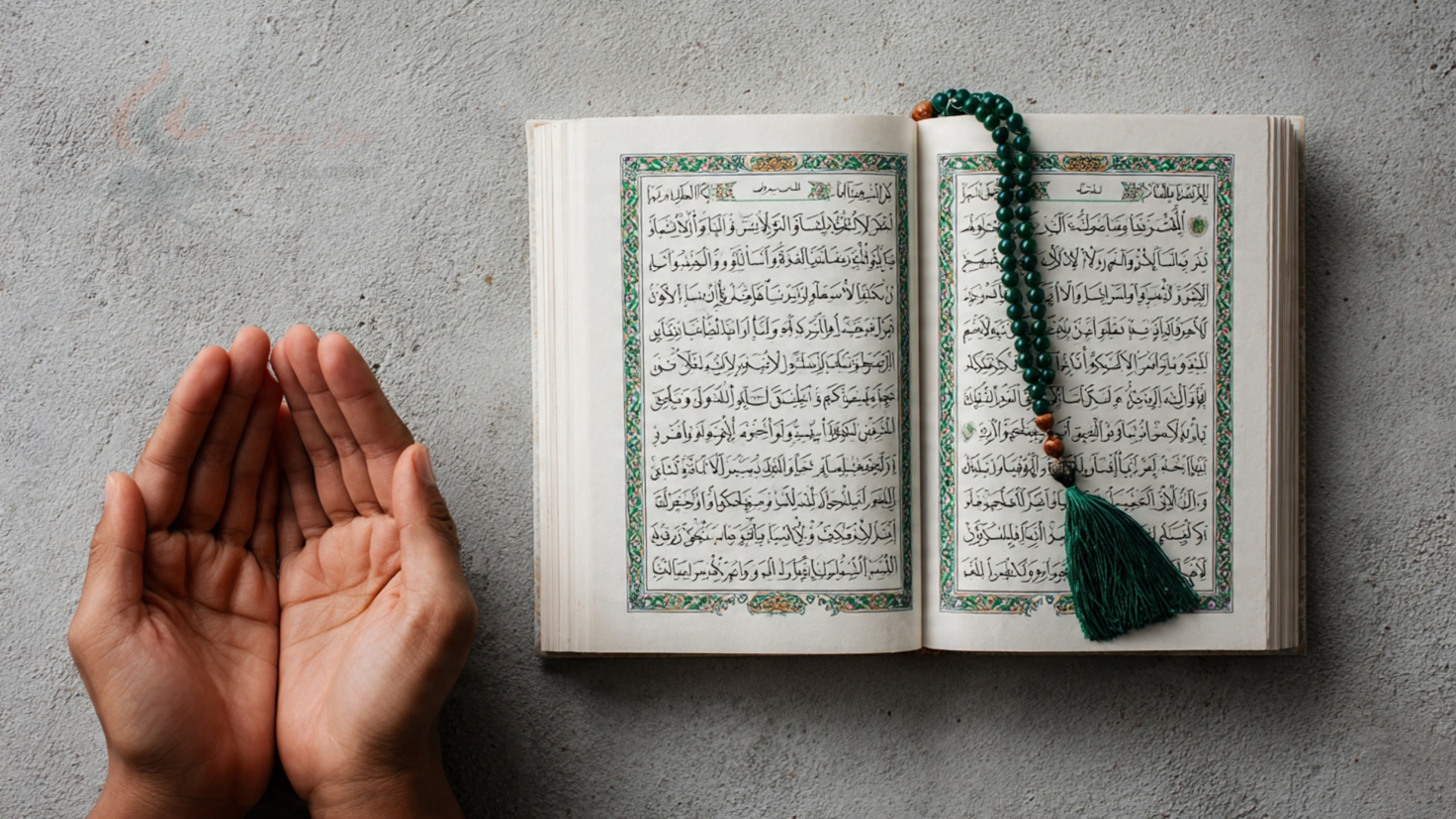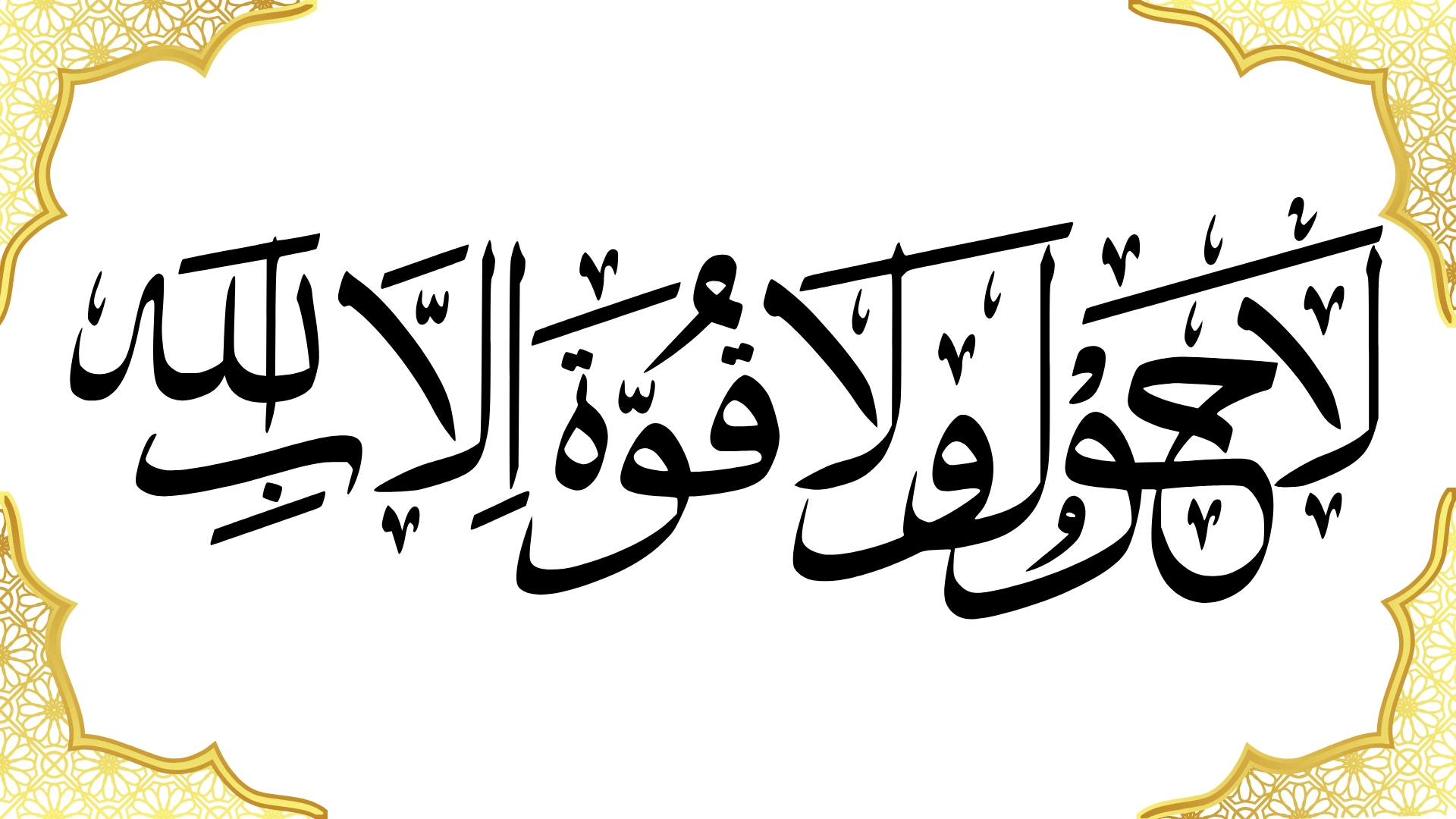Surah Al-Fath, meaning “The Victory,” is the 48th chapter of the Quran. It was revealed in Medina and consists of 29 verses. This chapter focuses on themes like divine victory, forgiveness, and trust in Allah’s wisdom. It also highlights key historical events, such as the Treaty of Hudaybiyyah, offering profound spiritual lessons for reflection and growth.
They emphasize its role in redefining victory, not as military success but as spiritual triumph. Studies highlight how its verses encouraged unity, patience, and strong faith. These qualities, they argue, helped Muslims during pivotal moments in Islamic history and remain valuable today.
Surah Al-Fath inspires individuals and communities alike. It teaches that challenges often lead to hidden blessings. This chapter calls its readers to trust, act with patience, and stay united. Its message is timeless, directly addressing the struggles of both past and present.
Understanding Surah Al-Fath
Surah Al-Fath, the 48th chapter of the Holy Quran, holds a unique place in Islamic scripture. Revealed in Medina, it consists of 29 beautifully crafted verses. Aptly named Al-Fath (The Victory), this surah encapsulates the themes of divine triumph, forgiveness, and spiritual fulfillment. It interprets victory not just in material conquest but also in spiritual enlightenment and growth.
This pivotal surah addresses significant historical moments, illuminating events like the Treaty of Hudaybiyyah. It is more than a historical commentary – it serves as a guide for Muslims to reflect on their trust in Allah and their collective responsibilities.
Historical Context
Before its revelation, relations between the Quraysh of Mecca and the Muslims in Medina were fraught with conflict. Several battles, notably the Battle of Badr and the Battle of Uhud, had escalated this animosity.
The Prophet Muhammad (peace be upon him) dreamed of performing Umrah (the minor pilgrimage) at the Kaaba in Mecca. Although this vision was inspired by divine revelation, it seemed unattainable due to the volatile political climate. Nevertheless, he embarked on this pilgrimage with 1,400 companions in a display of faith and determination.
Following tense negotiations, the Treaty of Hudaybiyyah was established. At first glance, the treaty appeared disadvantageous to Muslims. Additionally, certain terms seemed to favor the Quraysh, such as the condition to return any Meccan Muslims who fled to Medina.
How could an apparent loss be a victory? The answer lies in Allah’s wisdom and the remarkable changes the treaty facilitated.
Implications of the Treaty
The Treaty of Hudaybiyyah granted peace between Muslims and Quraysh for ten years, allowing the former to focus on spreading Islam peacefully. During this time, many tribes embraced Islam after observing the behavior and moral values of the Muslims. It was a period of growth, unity, and strategic strengthening for the Muslim community.
Until then, the Quraysh had treated Muslims as rebels. Now, they recognized them as a political entity, altering the geopolitical landscape of Arabia.

Surah Al-Fath Transliteration, English & Urdu Translation
بِسۡمِ ٱللَّهِ ٱلرَّحۡمَٰنِ ٱلرَّحِيمِ
Bismillah hir rahman nir raheem
In the name of Allah, the Entirely Merciful, the Especially Merciful.
إِنَّا فَتَحۡنَا لَكَ فَتۡحٗا مُّبِينٗا
Innaa fatahnaa laka Fatham Mubeenaa
Indeed, we have given you, [O Muhammad], a clear conquest
لِّيَغۡفِرَ لَكَ ٱللَّهُ مَا تَقَدَّمَ مِن ذَنۢبِكَ وَمَا تَأَخَّرَ وَيُتِمَّ نِعۡمَتَهُۥ عَلَيۡكَ وَيَهۡدِيَكَ صِرَٰطٗا مُّسۡتَقِيمٗا
Liyaghfira lakal laahu maa taqaddama min zanbika wa maa ta akhkhara wa yutimma ni’matahoo ‘alaika wa yahdiyaka siraatan mustaqeema
That Allah may forgive for you what preceded your sin and what will follow, and complete His favor upon you and guide you to a straight path
وَيَنصُرَكَ ٱللَّهُ نَصۡرًا عَزِيزًا
Wa yansurakal laahu nasran ‘azeezaa
And [that] Allah may aid you with a mighty victory.
هُوَ ٱلَّذِيٓ أَنزَلَ ٱلسَّكِينَةَ فِي قُلُوبِ ٱلۡمُؤۡمِنِينَ لِيَزۡدَادُوٓاْ إِيمَٰنٗا مَّعَ إِيمَٰنِهِمۡۗ وَلِلَّهِ جُنُودُ ٱلسَّمَٰوَٰتِ وَٱلۡأَرۡضِۚ وَكَانَ ٱللَّهُ عَلِيمًا حَكِيمٗا
Huwal lazeee anzalas sakeenata fee quloobil mu’mineena liyazdaadooo eemaanamma’a eemaanihim; wa lillaahi junoodus samawaati wal ard; wa kaanal laahu ‘Aleeman Hakeemaa
It is He who sent down tranquillity into the hearts of the believers that they would increase in faith along with their [present] faith. And to Allah belong the soldiers of the heavens and the earth, and ever is Allah Knowing and Wise.
لِّيُدۡخِلَ ٱلۡمُؤۡمِنِينَ وَٱلۡمُؤۡمِنَٰتِ جَنَّـٰتٖ تَجۡرِي مِن تَحۡتِهَا ٱلۡأَنۡهَٰرُ خَٰلِدِينَ فِيهَا وَيُكَفِّرَ عَنۡهُمۡ سَيِّـَٔاتِهِمۡۚ وَكَانَ ذَٰلِكَ عِندَ ٱللَّهِ فَوۡزًا عَظِيمٗا
Liyudkhilal mu’mineena walmu’minaati jannaatin tajree min tahtihal anhaaru khaalideena feehaa wa yukaffira ‘anhum saiyi aatihim; wa kaana zaalika ‘indal laahi fawzan ‘azeemaa
[And] that He may admit the believing men and the believing women to gardens beneath which rivers flow to abide therein eternally and remove from them their misdeeds – and ever is that, in the sight of Allah, a great attainment –
وَيُعَذِّبَ ٱلۡمُنَٰفِقِينَ وَٱلۡمُنَٰفِقَٰتِ وَٱلۡمُشۡرِكِينَ وَٱلۡمُشۡرِكَٰتِ ٱلظَّآنِّينَ بِٱللَّهِ ظَنَّ ٱلسَّوۡءِۚ عَلَيۡهِمۡ دَآئِرَةُ ٱلسَّوۡءِۖ وَغَضِبَ ٱللَّهُ عَلَيۡهِمۡ وَلَعَنَهُمۡ وَأَعَدَّ لَهُمۡ جَهَنَّمَۖ وَسَآءَتۡ مَصِيرٗا
Wa yu’azzibal munaafiqeena walmunaafiqaati wal mushrikeena walmushrikaatiz zaaanneena billaahi zannas saw’; ‘alaihim daaa’iratus saw’i wa ghadibal laahu ‘alaihim wa la’anahum wa a’adda lahum jahannama wa saaa’ at maseeraa
And that He may punish the hypocrite men and hypocrite women, and the polytheist men and polytheist women – those who assume about Allah an assumption of evil nature. Upon them is a misfortune of evil nature; and Allah has become angry with them and has cursed them and prepared for them Hell, and evil it is as a destination.
وَلِلَّهِ جُنُودُ ٱلسَّمَٰوَٰتِ وَٱلۡأَرۡضِۚ وَكَانَ ٱللَّهُ عَزِيزًا حَكِيمًا
Wa lillaahi junoodus samaawaati wal ard; wa kaanal laahu ‘azeezan hakeema
And to Allah belong the soldiers of the heavens and the earth. And ever is Allah Exalted in Might and Wise.
إِنَّآ أَرۡسَلۡنَٰكَ شَٰهِدٗا وَمُبَشِّرٗا وَنَذِيرٗا
Innaaa arsalnaaka shaahi danw wa mubashshiranw wa nazeera
Indeed, we have sent you as a witness and a bringer of good tidings and a warner
لِّتُؤۡمِنُواْ بِٱللَّهِ وَرَسُولِهِۦ وَتُعَزِّرُوهُ وَتُوَقِّرُوهُۚ وَتُسَبِّحُوهُ بُكۡرَةٗ وَأَصِيلًا
Litu minoo billaahi wa Rasoolihee wa tu’azziroohu watuwaqqiroohu watusabbi hoohu bukratanw wa aseelaa
That you [people] may believe in Allah and His Messenger and honor him and respect the Prophet and exalt Allah morning and afternoon.
إِنَّ ٱلَّذِينَ يُبَايِعُونَكَ إِنَّمَا يُبَايِعُونَ ٱللَّهَ يَدُ ٱللَّهِ فَوۡقَ أَيۡدِيهِمۡۚ فَمَن نَّكَثَ فَإِنَّمَا يَنكُثُ عَلَىٰ نَفۡسِهِۦۖ وَمَنۡ أَوۡفَىٰ بِمَا عَٰهَدَ عَلَيۡهُ ٱللَّهَ فَسَيُؤۡتِيهِ أَجۡرًا عَظِيمٗا
Innal lazeena yubaayi’oonaka innamaa yubaayi’oonal laaha yadul laahi fawqa aydeehim; faman nakasa fainnamaa yankusu ‘alaa nafsihee wa man awfaa bimaa ‘aahada ‘alaihullaaha fasa yu’teehi ajran ‘azeemaa (section 1)
Indeed, those who pledge allegiance to you, [O Muhammad] – they are pledging allegiance to Allah. The hand of Allah is over their hands. So he who breaks his word only breaks it to the detriment of himself. And he who fulfills that which he has promised Allah, He will give him a great reward.
سَيَقُولُ لَكَ ٱلۡمُخَلَّفُونَ مِنَ ٱلۡأَعۡرَابِ شَغَلَتۡنَآ أَمۡوَٰلُنَا وَأَهۡلُونَا فَٱسۡتَغۡفِرۡ لَنَاۚ يَقُولُونَ بِأَلۡسِنَتِهِم مَّا لَيۡسَ فِي قُلُوبِهِمۡۚ قُلۡ فَمَن يَمۡلِكُ لَكُم مِّنَ ٱللَّهِ شَيۡـًٔا إِنۡ أَرَادَ بِكُمۡ ضَرًّا أَوۡ أَرَادَ بِكُمۡ نَفۡعَۢاۚ بَلۡ كَانَ ٱللَّهُ بِمَا تَعۡمَلُونَ خَبِيرَۢا
Sa yaqoolu lakal mukhal lafoona minal-A’raabi shaighalatnaaa amwaalunaa wa ahloonaa fastaghfir lanaa; yaqooloona bi alsinatihim maa laisa fee quloobihim; qul famany yamliku lakum minal laahi shai’an in araada bikum darran aw araada bikum naf’aa; bal kaanal laahu bimaa ta’maloona Khabeeraa
Those who remained behind among the Bedouins will say to you, “Our properties and our families occupied us, so ask forgiveness for us.” They say with their tongues what is not within their hearts. Say, “Then who could prevent Allah at all if He intended for you harm or intended for you benefit? Rather, ever is Allah, with what you do, Acquainted.
بَلۡ ظَنَنتُمۡ أَن لَّن يَنقَلِبَ ٱلرَّسُولُ وَٱلۡمُؤۡمِنُونَ إِلَىٰٓ أَهۡلِيهِمۡ أَبَدٗا وَزُيِّنَ ذَٰلِكَ فِي قُلُوبِكُمۡ وَظَنَنتُمۡ ظَنَّ ٱلسَّوۡءِ وَكُنتُمۡ قَوۡمَۢا بُورٗا
Bal zanantum al lany yanqalibar Rasoolu walmu’minoona ilaaa ahleehim abadanw wa zuyyina zaalika fee quloobikum wa zanantum zannnas saw’i wa kuntum qawmam booraa
But you thought that the Messenger and the believers would never return to their families, ever, and that was made pleasing in your hearts. And you assumed an assumption of evil and became a people ruined.”
وَمَن لَّمۡ يُؤۡمِنۢ بِٱللَّهِ وَرَسُولِهِۦ فَإِنَّآ أَعۡتَدۡنَا لِلۡكَٰفِرِينَ سَعِيرٗا
Wa mal lam yu’mim billaahi wa Rasoolihee fainnaaa a’tadnaa lilkaafireena sa’eeraa
And whoever has not believed in Allah and His Messenger – then indeed, We have prepared for the disbelievers a Blaze.
وَلِلَّهِ مُلۡكُ ٱلسَّمَٰوَٰتِ وَٱلۡأَرۡضِۚ يَغۡفِرُ لِمَن يَشَآءُ وَيُعَذِّبُ مَن يَشَآءُۚ وَكَانَ ٱللَّهُ غَفُورٗا رَّحِيمٗا
Wa lillaahii mulkus samaawaati wal ard; yaghfiru limany yashaaa’u wa yu’azzibu many yashaaa’; wa kaanal laahu Ghafoorar Raheemaa
And to Allah belongs the dominion of the heavens and the earth. He forgives whom He wills and punishes whom He wills. And ever is Allah Forgiving and Merciful.
سَيَقُولُ ٱلۡمُخَلَّفُونَ إِذَا ٱنطَلَقۡتُمۡ إِلَىٰ مَغَانِمَ لِتَأۡخُذُوهَا ذَرُونَا نَتَّبِعۡكُمۡۖ يُرِيدُونَ أَن يُبَدِّلُواْ كَلَٰمَ ٱللَّهِۚ قُل لَّن تَتَّبِعُونَا كَذَٰلِكُمۡ قَالَ ٱللَّهُ مِن قَبۡلُۖ فَسَيَقُولُونَ بَلۡ تَحۡسُدُونَنَاۚ بَلۡ كَانُواْ لَا يَفۡقَهُونَ إِلَّا قَلِيلٗا
Sa yaqoolul mukhalla foona izan talaqtum ilaa maghaanima litaakhuzoohaa zaroonaa nattabi’kum yureedoona any yubaddiloo Kalaamallaah; qul lan tattabi’oonaa kazaalikum qaalal laahu min qablu fasa yaqooloona bal tahsudoonanna; bal kaanoo laa yafqahoona illaa qaleela
Those who remained behind will say when you set out toward the war booty to take it, “Let us follow you.” They wish to change the words of Allah. Say, “Never will you follow us. Thus did Allah say before.” So they will say, “Rather, you envy us.” But [in fact] they were not understanding except a little.
قُل لِّلۡمُخَلَّفِينَ مِنَ ٱلۡأَعۡرَابِ سَتُدۡعَوۡنَ إِلَىٰ قَوۡمٍ أُوْلِي بَأۡسٖ شَدِيدٖ تُقَٰتِلُونَهُمۡ أَوۡ يُسۡلِمُونَۖ فَإِن تُطِيعُواْ يُؤۡتِكُمُ ٱللَّهُ أَجۡرًا حَسَنٗاۖ وَإِن تَتَوَلَّوۡاْ كَمَا تَوَلَّيۡتُم مِّن قَبۡلُ يُعَذِّبۡكُمۡ عَذَابًا أَلِيمٗا
Qul lilmukhallafeena minal A’raabi satud’awna ilaa qawmin ulee baasin shadeedin tuqaati loonahum aw yuslimoona fa in tutee’oo yu’tikumul laahu ajran hasananw wa in tatawallaw kamaa tawallaitum min qablu yu’azzibkum ‘azaaban aleemaa
Say to those who remained behind of the bedouins, “You will be called to [face] a people of great military might; you may fight them, or they will submit. So if you obey, Allah will give you a good reward; but if you turn away as you turned away before, He will punish you with a painful punishment.”
لَّيۡسَ عَلَى ٱلۡأَعۡمَىٰ حَرَجٞ وَلَا عَلَى ٱلۡأَعۡرَجِ حَرَجٞ وَلَا عَلَى ٱلۡمَرِيضِ حَرَجٞۗ وَمَن يُطِعِ ٱللَّهَ وَرَسُولَهُۥ يُدۡخِلۡهُ جَنَّـٰتٖ تَجۡرِي مِن تَحۡتِهَا ٱلۡأَنۡهَٰرُۖ وَمَن يَتَوَلَّ يُعَذِّبۡهُ عَذَابًا أَلِيمٗا
Laisa ‘alal a’maa harajunw wa laa ‘alal a’raji harajunw wa laa ‘alal mareedi haraj’ wa many yutil’il laaha wa Rasoolahoo yudkhilhu jannaatin tajree min tahtihal anhaaru wa many yatawalla yu’azzibhu ‘azaaban aleemaa (section 2)
There is not upon the blind, any guilt upon the lame, any guilt upon the ill, any guilt [for remaining behind. And whoever obeys Allah and His Messenger – He will admit him to gardens beneath which rivers flow; but whoever turns away – He will punish him with a painful punishment.
۞لَّقَدۡ رَضِيَ ٱللَّهُ عَنِ ٱلۡمُؤۡمِنِينَ إِذۡ يُبَايِعُونَكَ تَحۡتَ ٱلشَّجَرَةِ فَعَلِمَ مَا فِي قُلُوبِهِمۡ فَأَنزَلَ ٱلسَّكِينَةَ عَلَيۡهِمۡ وَأَثَٰبَهُمۡ فَتۡحٗا قَرِيبٗا
Laqad radiyal laahu ‘anil mu’mineena iz yubaayi ‘oonaka tahtash shajarati fa’alima maa fee quloobihim fa anzalas sakeenata ‘alaihim wa asaa bahum fat han qareebaa
Certainly, Allah was pleased with the believers when they pledged allegiance to you, [O Muhammad], under the tree, and He knew what was in their hearts, so He sent down tranquillity upon them and rewarded them with an imminent conquest
وَمَغَانِمَ كَثِيرَةٗ يَأۡخُذُونَهَاۗ وَكَانَ ٱللَّهُ عَزِيزًا حَكِيمٗا
Wa maghaanima kaseera tany yaakhuzoonahaa; wa kaanal laahu ‘Azeezan Hakeemaa
And much war booty, which they will take. And ever is Allah Exalted in Might and Wise.
وَعَدَكُمُ ٱللَّهُ مَغَانِمَ كَثِيرَةٗ تَأۡخُذُونَهَا فَعَجَّلَ لَكُمۡ هَٰذِهِۦ وَكَفَّ أَيۡدِيَ ٱلنَّاسِ عَنكُمۡ وَلِتَكُونَ ءَايَةٗ لِّلۡمُؤۡمِنِينَ وَيَهۡدِيَكُمۡ صِرَٰطٗا مُّسۡتَقِيمٗا
Wa’adakumul laahu ma ghaanima kaseeratan taakhuzoo nahaa fa’ajjala lakum haazihee wa kaffa aydiyan naasi ‘ankum wa litakoona aayatal lilmu’mineena wa yahdiyakum siraatam mustaqeema
Allah has promised you much booty that you will take [in the future] and has hastened for you this [victory] and withheld the hands of people from you – that it may be a sign for the believers and [that] He may guide you to a straight path.
وَأُخۡرَىٰ لَمۡ تَقۡدِرُواْ عَلَيۡهَا قَدۡ أَحَاطَ ٱللَّهُ بِهَاۚ وَكَانَ ٱللَّهُ عَلَىٰ كُلِّ شَيۡءٖ قَدِيرٗا
Wa ukhraa lam taqdiroo ‘alaihaa qad ahaatal laahu bihaa; wa kaanal laahu ‘alaa kulli shai’in qadeera
And [He promises] other [victories] that you were so far] unable to [realize], which Allah has already encompassed. And ever is Allah, over all things, competent.
وَلَوۡ قَٰتَلَكُمُ ٱلَّذِينَ كَفَرُواْ لَوَلَّوُاْ ٱلۡأَدۡبَٰرَ ثُمَّ لَا يَجِدُونَ وَلِيّٗا وَلَا نَصِيرٗا
Wa law qaatalakumul lazeena kafaroo la wallawul adbaara summa laa yajidoona waliyanw-wa laa naseeraa
And it is He who withheld their hands from you and your hands from them within [the area of] Makkah after He caused you to overcome them. And ever is Allah of what you do, Seeing.
هُمُ ٱلَّذِينَ كَفَرُواْ وَصَدُّوكُمۡ عَنِ ٱلۡمَسۡجِدِ ٱلۡحَرَامِ وَٱلۡهَدۡيَ مَعۡكُوفًا أَن يَبۡلُغَ مَحِلَّهُۥۚ وَلَوۡلَا رِجَالٞ مُّؤۡمِنُونَ وَنِسَآءٞ مُّؤۡمِنَٰتٞ لَّمۡ تَعۡلَمُوهُمۡ أَن تَطَـُٔوهُمۡ فَتُصِيبَكُم مِّنۡهُم مَّعَرَّةُۢ بِغَيۡرِ عِلۡمٖۖ لِّيُدۡخِلَ ٱللَّهُ فِي رَحۡمَتِهِۦ مَن يَشَآءُۚ لَوۡ تَزَيَّلُواْ لَعَذَّبۡنَا ٱلَّذِينَ كَفَرُواْ مِنۡهُمۡ عَذَابًا أَلِيمًا
Humul lazeena kafaroo wa saddookum ‘anil-Masjidil-Haraami walhadya ma’koofan any yablugha mahillah; wa law laa rijaalum mu’minoona wa nisaaa’um mu’minaatul lam ta’lamoohum an tata’oohum fatuseebakum minhum ma’arratum bighairi ‘ilmin liyud khilal laahu fee rahmatihee many yashaaa’; law tazayyaloo la’azzabnal lazeena kafaroo minhum ‘azaaban aleema
They are the ones who disbelieved and obstructed you from al-Masjid al-Haram while the offering was prevented from reaching its place of sacrifice. And if not for believing men and believing women whom you did not know – that you might trample them and there would befall you because of them dishonor without [your] knowledge – [you would have been permitted to enter Makkah]. [This was so] that Allah might admit to His mercy whom He willed. If they had been apart [from them], we would have punished those who disbelieved among them with painful punishment
إِذۡ جَعَلَ ٱلَّذِينَ كَفَرُواْ فِي قُلُوبِهِمُ ٱلۡحَمِيَّةَ حَمِيَّةَ ٱلۡجَٰهِلِيَّةِ فَأَنزَلَ ٱللَّهُ سَكِينَتَهُۥ عَلَىٰ رَسُولِهِۦ وَعَلَى ٱلۡمُؤۡمِنِينَ وَأَلۡزَمَهُمۡ كَلِمَةَ ٱلتَّقۡوَىٰ وَكَانُوٓاْ أَحَقَّ بِهَا وَأَهۡلَهَاۚ وَكَانَ ٱللَّهُ بِكُلِّ شَيۡءٍ عَلِيمٗا
Iz ja’alal lazeena kafaroo fee quloobihimul hamiyyata hamiyyatal jaahiliyyati fa anzalal laahu sakeenatahoo ‘alaa Rasoolihee wa ‘alal mu mineena wa alzamahum kalimatat taqwaa wa kaanooo ahaqqa bihaa wa ahlahaa; wa kaanal laahu bikulli shai’in Aleema (section 3)
When those who disbelieved had put into their hearts chauvinism – the chauvinism of the time of ignorance. But Allah sent down His tranquillity upon His Messenger and the believers and imposed upon them the word of righteousness, and they were more deserving of it and worthy of it. And ever is Allah, of all things, Knowing.
لَّقَدۡ صَدَقَ ٱللَّهُ رَسُولَهُ ٱلرُّءۡيَا بِٱلۡحَقِّۖ لَتَدۡخُلُنَّ ٱلۡمَسۡجِدَ ٱلۡحَرَامَ إِن شَآءَ ٱللَّهُ ءَامِنِينَ مُحَلِّقِينَ رُءُوسَكُمۡ وَمُقَصِّرِينَ لَا تَخَافُونَۖ فَعَلِمَ مَا لَمۡ تَعۡلَمُواْ فَجَعَلَ مِن دُونِ ذَٰلِكَ فَتۡحٗا قَرِيبًا
Laqad sadaqal laahu Rasoolahur ru’yaa bilhaqq, latadkhulunnal Masjidal-Haraama in shaaa’al laahu aamineena muhalliqeena ru’oosakum wa muqassireena laa takhaafoona fa’alima maa lam ta’lamoo faja’ala min dooni zaalika fathan qareebaa
Certainly has Allah shown His Messenger the vision in truth. You will surely enter al-Masjid al-Haram, if Allah wills, in safety, with your heads shaved and [hair] shortened, not fearing [anyone]. He knew what you did not know and has arranged before that a conquest near [at hand].
هُوَ ٱلَّذِيٓ أَرۡسَلَ رَسُولَهُۥ بِٱلۡهُدَىٰ وَدِينِ ٱلۡحَقِّ لِيُظۡهِرَهُۥ عَلَى ٱلدِّينِ كُلِّهِۦۚ وَكَفَىٰ بِٱللَّهِ شَهِيدٗا
Huwal lazeee arsala Rasoolahoo bilhudaa wa deenil haqqi liyuzhirahoo ‘alad deeni kullih; wa kafaa billaahi Shaheeda
It is He who sent His Messenger with guidance and the religion of truth to manifest it over all religions. And sufficient is Allah as Witness.
مُّحَمَّدٞ رَّسُولُ ٱللَّهِۚ وَٱلَّذِينَ مَعَهُۥٓ أَشِدَّآءُ عَلَى ٱلۡكُفَّارِ رُحَمَآءُ بَيۡنَهُمۡۖ تَرَىٰهُمۡ رُكَّعٗا سُجَّدٗا يَبۡتَغُونَ فَضۡلٗا مِّنَ ٱللَّهِ وَرِضۡوَٰنٗاۖ سِيمَاهُمۡ فِي وُجُوهِهِم مِّنۡ أَثَرِ ٱلسُّجُودِۚ ذَٰلِكَ مَثَلُهُمۡ فِي ٱلتَّوۡرَىٰةِۚ وَمَثَلُهُمۡ فِي ٱلۡإِنجِيلِ كَزَرۡعٍ أَخۡرَجَ شَطۡـَٔهُۥ فَـَٔازَرَهُۥ فَٱسۡتَغۡلَظَ فَٱسۡتَوَىٰ عَلَىٰ سُوقِهِۦ يُعۡجِبُ ٱلزُّرَّاعَ لِيَغِيظَ بِهِمُ ٱلۡكُفَّارَۗ وَعَدَ ٱللَّهُ ٱلَّذِينَ ءَامَنُواْ وَعَمِلُواْ ٱلصَّـٰلِحَٰتِ مِنۡهُم مَّغۡفِرَةٗ وَأَجۡرًا عَظِيمَۢا
Muhammadur Rasoolul laah; wallazeena ma’ahooo ashiddaaa’u ‘alal kuffaaari ruhamaaa’u bainahum taraahum rukka’an sujjadany yabtaghoona fadlam minal laahi wa ridwaana seemaahum fee wujoohihim min asaris sujood; zaalika masaluhum fit tawraah; wa masaluhum fil Injeeli kazar’in akhraja shat ‘ahoo fa ‘aazarahoo fastaghlaza fastawaa ‘alaa sooqihee yu’jibuz zurraa’a liyagheeza bihimul kuffaar; wa’adal laahul lazeena aamanoo wa ‘amilus saalihaati minhum maghfiratanw wa ajran ‘azeemaa (section 4)
Muhammad is the Messenger of Allah, and those with him are forceful against the disbelievers, merciful among themselves. You see them bowing and prostrating [in prayer], seeking bounty from Allah and [His] pleasure. Their mark is on their faces from the trace of prostration. That is their description in the Torah. And their description in the Gospel is as a plant which produces its offshoots and strengthens them so they grow firm and stand upon their stalks, delighting the sowers, so that Allah may enrage by them the disbelievers. Allah has promised those who believe and do righteous deeds among them forgiveness and a great reward.
Key Themes of Surah Al-Fath
Divine Victory
The surah opens with the verse, “Indeed, We have granted you a manifest victory” (48:1). This “manifest victory” signifies the Treaty of Hudaybiyyah, which created strategic advantages for the Muslims despite initial disappointment.
This verse reminds believers that Allah’s wisdom often surpasses our understanding. A temporary setback may pave the way for ultimate success.
Forgiveness and Mercy
Verse 2 emphasizes Allah’s forgiveness, addressing the Prophet Muhammad (peace be upon him) specifically. “That Allah may forgive you your past and future sins and complete His favor upon you and guide you on the Straight Path.”
This verse not only reassures the Prophet but also highlights Allah’s infinite mercy and the importance of seeking His forgiveness. It serves as a reminder of the magnanimity of Allah’s guidance and His plans for His chosen messenger.
Trust in Divine Wisdom
Another recurring theme is reliance on Allah. Muslims are urged to place their trust in Him, as seen in Verse 4, which talks about the tranquility Allah sends to the hearts of believers during challenging times. This verse reinforces the sentiment of peace and composure gained through unshakeable faith in Allah’s commands.
Unity and Brotherhood
The surah highlights the concept of allegiance to the Prophet Muhammad (peace be upon him) as equivalent to allegiance to Allah, a statement that strengthens the unity and collective vision of the Muslim Ummah. Verse 10 asserts, “Indeed, those who pledge allegiance to you (O Prophet) – they are pledging allegiance to Allah.”
This collective spirit underscores the importance of solidarity among Muslims, ensuring that their efforts remain united towards a greater good.
The Role of Spiritual Conquest
Surah Al-Fath redefines victory. The triumph of Islam comes from its enduring ability to transform hearts, inspire change, and bring individuals closer to Allah. This timeless lesson continues to resonate today.
Lessons for Modern Readers
Patience Leads to Success
The Treaty of Hudaybiyyah tested the patience of Prophet Muhammad (peace be upon him) and his followers. Many companions initially felt disheartened by its terms. However, their patience and trust in Allah revealed the treaty’s far-reaching benefits.
This lesson is a reminder for Muslims today to endure life’s trials with resilience. What may appear as defeat could carry unforeseen blessings.
Unity Strengthens Believers
Throughout history, unity has always been a source of strength for Muslims. Surah Al-Fath underscores the importance of solidarity. Modern Muslims can draw from this teaching to overcome divisions and achieve shared goals.
True Victory is a Spiritual Triumph
The surah teaches that the core of success lies in transforming people’s hearts. For Muslims striving to bring positive change to the world, this principle calls for promoting moral and spiritual values rather than focusing solely on material gains.
Guidance for Leadership
The wisdom and strategic foresight of Prophet Muhammad (peace be upon him) in controversial situations like Hudaybiyyah offer crucial lessons for leaders. A balanced, principled approach can create long-lasting impact far beyond immediate circumstances.
Relevance Today
Surah Al-Fath carries a universal message with enduring relevance. Its teachings remain a powerful guide for navigating the complexities of modern life, whether at the individual, communal, or global level.
Today, the values of trust in Allah, unity, patience, and strategic planning are more crucial than ever. Muslims facing political, economic, or personal challenges can find reassurance in the example set during the Prophet’s time. This surah reminds us that apparent setbacks are often the prelude to success, provided we maintain faith and purpose.
Content
The surah teaches us an important lesson about reframing setbacks. Whether in personal conflicts, community struggles, or global challenges, how we perceive and act upon situations matters. Surah Al-Fath calls upon readers to adopt a long-term vision rooted in faith, adaptability, and adherence to divine guidance. Its emphasis on spiritual victories rather than material dominance is a principle that the modern world, amidst its chaos, still needs to learn.
This chapter inspires Muslims to strive not just for worldly success but also for the betterment of their souls and communities, setting an enduring legacy of grace, patience, and wisdom.
Surah Al-Fath is more than a historical account; it is a timeless treasure of wisdom. Its relevance transcends centuries, reminding believers that true victory lies in faith, patience, and resilience. It is an invitation to view challenges as opportunities for spiritual and communal growth, fueled by trust in Allah’s infinite wisdom.




